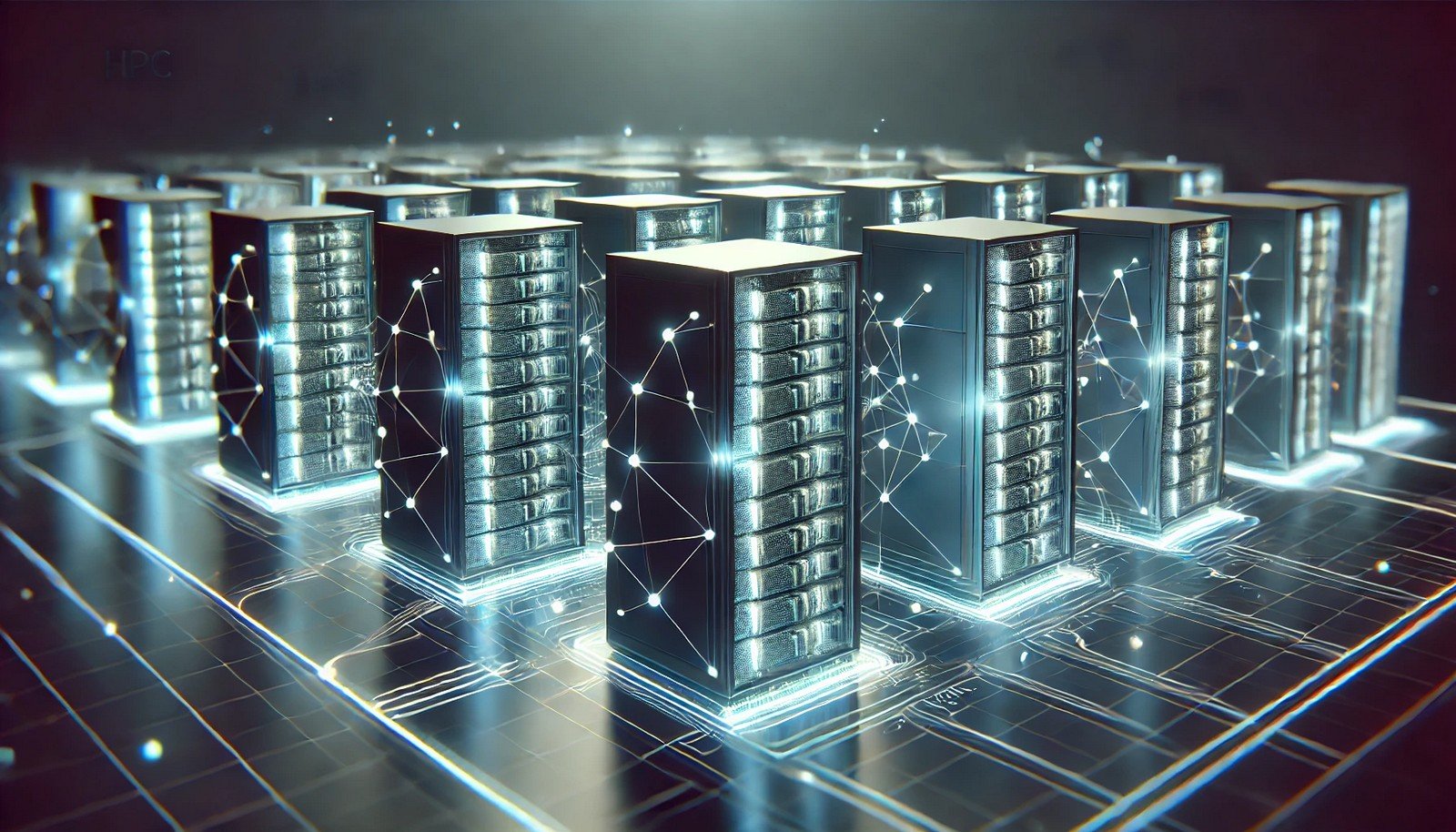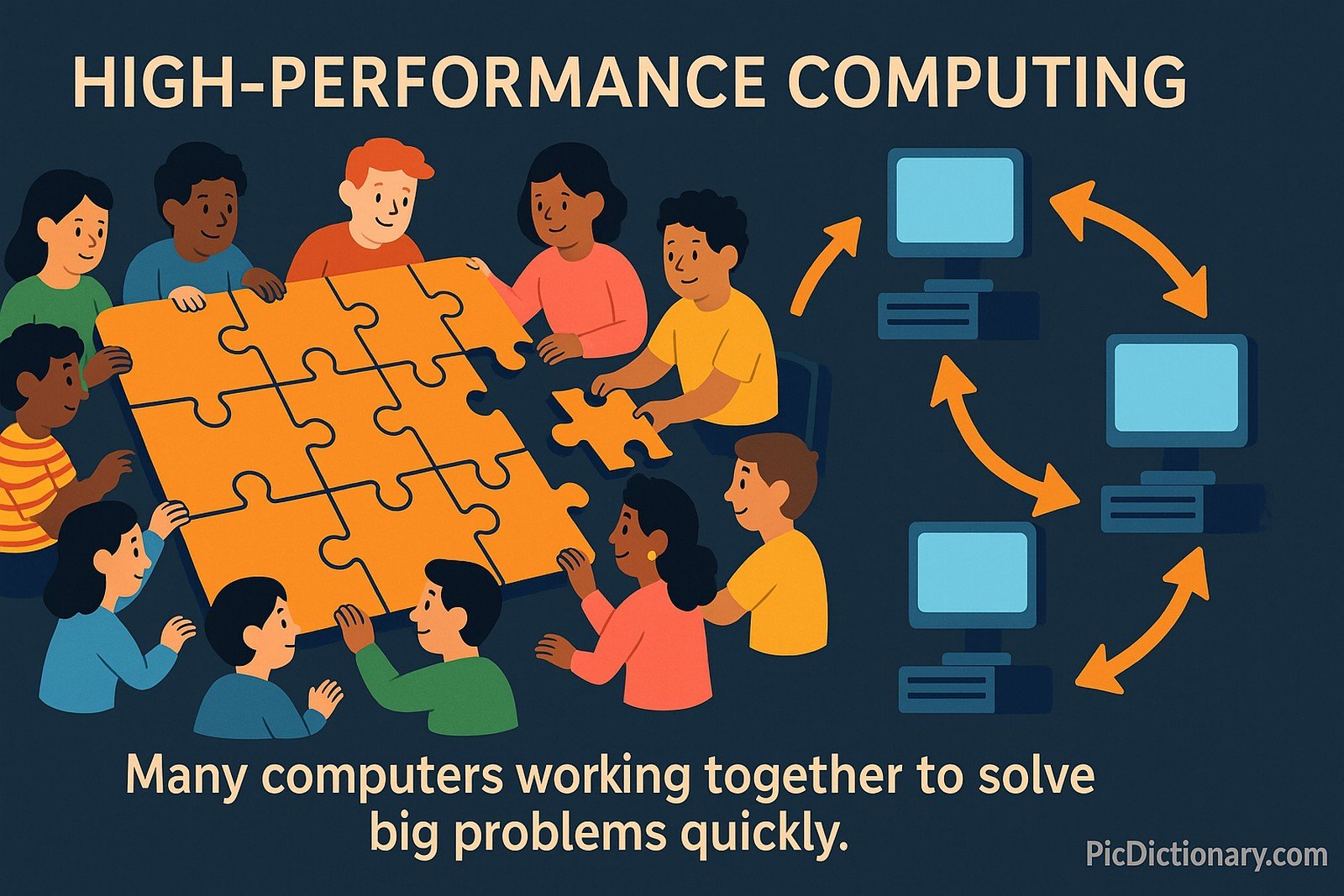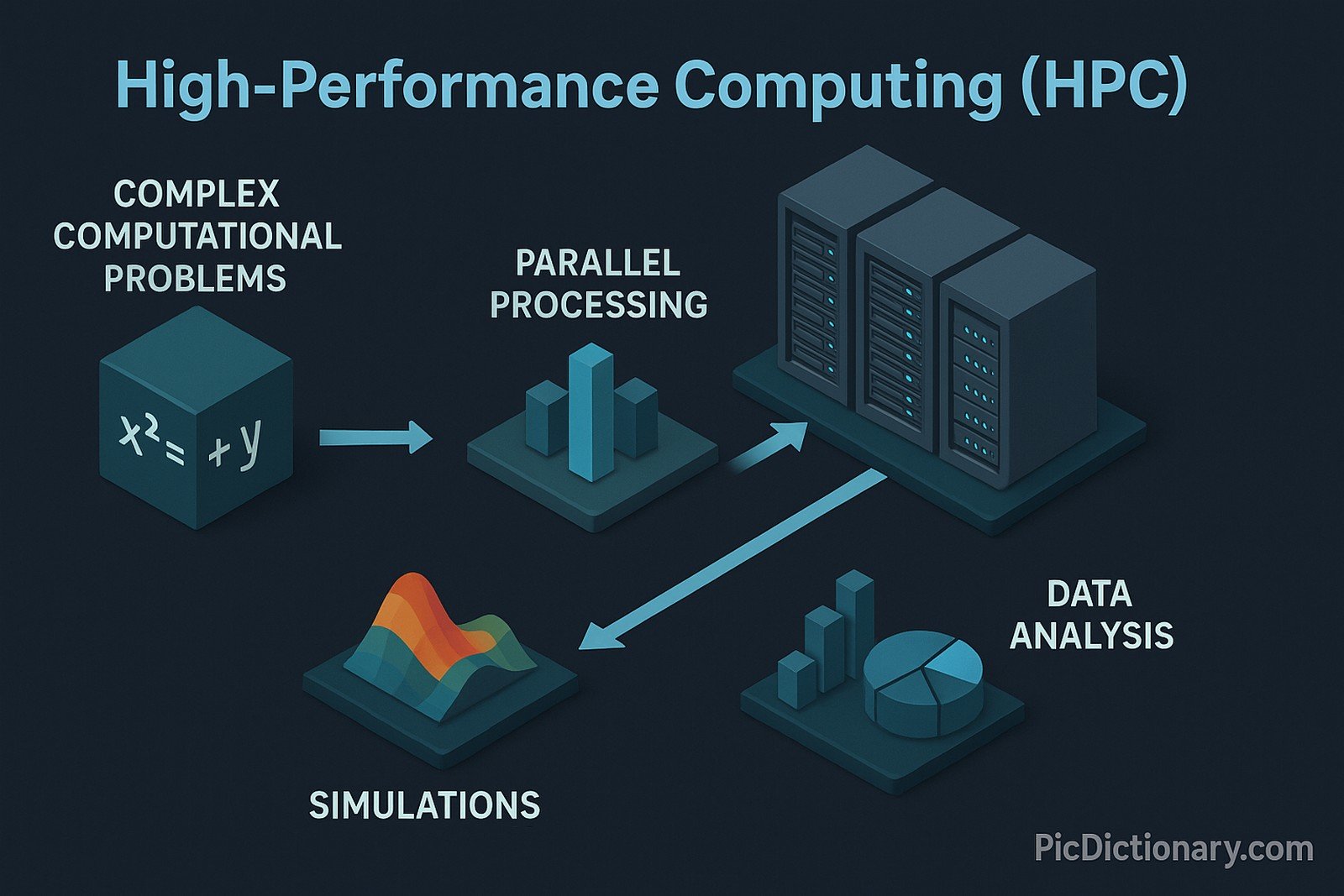High-Performance Computing (HPC)
 (Representational Image | Source: Dall-E)
(Representational Image | Source: Dall-E)
Quick Navigation:
- High-Performance Computing (HPC) Definition
- High-Performance Computing (HPC) Explained Easy
- High-Performance Computing (HPC) Origin
- High-Performance Computing (HPC) Etymology
- High-Performance Computing (HPC) Usage Trends
- High-Performance Computing (HPC) Usage
- High-Performance Computing (HPC) Examples in Context
- High-Performance Computing (HPC) FAQ
- High-Performance Computing (HPC) Related Words
High-Performance Computing (HPC) Definition
High-Performance Computing (HPC) refers to the use of supercomputers and parallel processing techniques to solve complex computational problems at high speed. HPC systems leverage thousands to millions of processing cores to perform large-scale calculations, simulations, and data analysis.
High-Performance Computing (HPC) Explained Easy
Imagine you have a really big puzzle to solve, but instead of doing it alone, you have a thousand friends helping you at the same time. Each friend works on a small part of the puzzle, so you finish way faster. That’s how High-Performance Computing works—many computers working together to solve big problems quickly.
High-Performance Computing (HPC) Origin
HPC has its roots in the early days of computing, particularly in the 1960s when researchers sought faster ways to perform mathematical calculations. The development of supercomputers, such as the CDC 6600 in 1964, revolutionized computational science.
High-Performance Computing (HPC) Etymology
The term "High-Performance Computing" combines "high-performance," referring to exceptional speed and efficiency, with "computing," the process of using computers to perform tasks.
High-Performance Computing (HPC) Usage Trends
HPC has seen rapid adoption across various industries, driven by the growth of big data, artificial intelligence, and scientific computing. The rise of cloud-based HPC services has also made it more accessible to smaller organizations.
High-Performance Computing (HPC) Usage
- Formal/Technical Tagging: Supercomputing, Parallel Computing, Distributed Systems
- Typical Collocations: "HPC clusters", "parallel processing in HPC", "supercomputing applications", "HPC data centers"
High-Performance Computing (HPC) Examples in Context
- Scientists use HPC to simulate climate change models, predicting future environmental conditions.
- Financial institutions leverage HPC to analyze market trends and execute high-frequency trading.
- Researchers use HPC to develop new drugs by simulating molecular interactions.
High-Performance Computing (HPC) FAQ
- What is High-Performance Computing (HPC)?
HPC involves using supercomputers and advanced computing techniques to solve complex problems quickly. - How does HPC differ from regular computing?
Unlike regular computers, HPC systems use multiple processors in parallel to handle massive workloads. - What industries use HPC?
Industries like healthcare, finance, engineering, and scientific research rely on HPC for simulations and data analysis. - What are the key components of an HPC system?
HPC systems consist of powerful processors, large memory, fast storage, and high-speed networking. - Can HPC be used for artificial intelligence?
Yes, HPC accelerates AI training by processing massive datasets with parallel computing. - What is cloud-based HPC?
Cloud-based HPC allows users to access powerful computing resources remotely without needing physical infrastructure. - Why is parallel computing important in HPC?
Parallel computing enables HPC systems to divide large problems into smaller tasks, solving them simultaneously for faster results. - What challenges does HPC face?
Challenges include high costs, power consumption, and software optimization for parallel architectures. - What is the fastest HPC system in the world?
The fastest HPC systems are ranked in the TOP500 list, with exascale computing emerging as the next frontier. - How does HPC contribute to scientific research?
HPC accelerates simulations, modeling, and data analysis in fields like genomics, physics, and climate science.

High-Performance Computing (HPC) Related Words
- Categories/Topics: Supercomputing, Big Data Analytics, Cloud Computing
Did you know? In 2022, the Frontier supercomputer became the world’s first exascale system, capable of performing over one quintillion calculations per second, marking a new era in High-Performance Computing.
PicDictionary.com is an online dictionary in pictures. If you have questions or suggestions, please reach out to us on WhatsApp or Twitter.Authors | Arjun Vishnu | @ArjunAndVishnu

I am Vishnu. I like AI, Linux, Single Board Computers, and Cloud Computing. I create the web & video content, and I also write for popular websites.
My younger brother, Arjun handles image & video editing. Together, we run a YouTube Channel that's focused on reviewing gadgets and explaining technology.



Comments powered by CComment